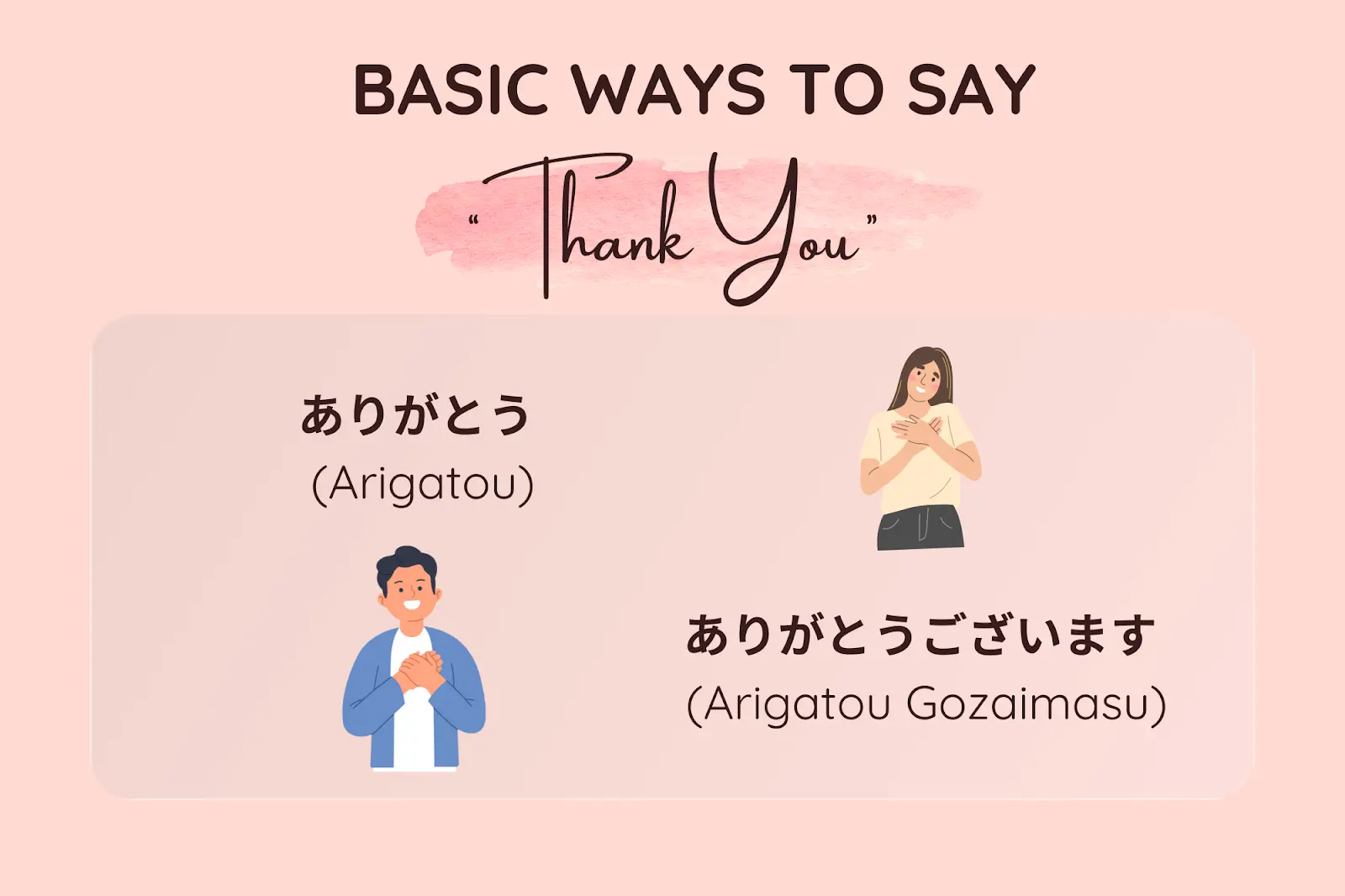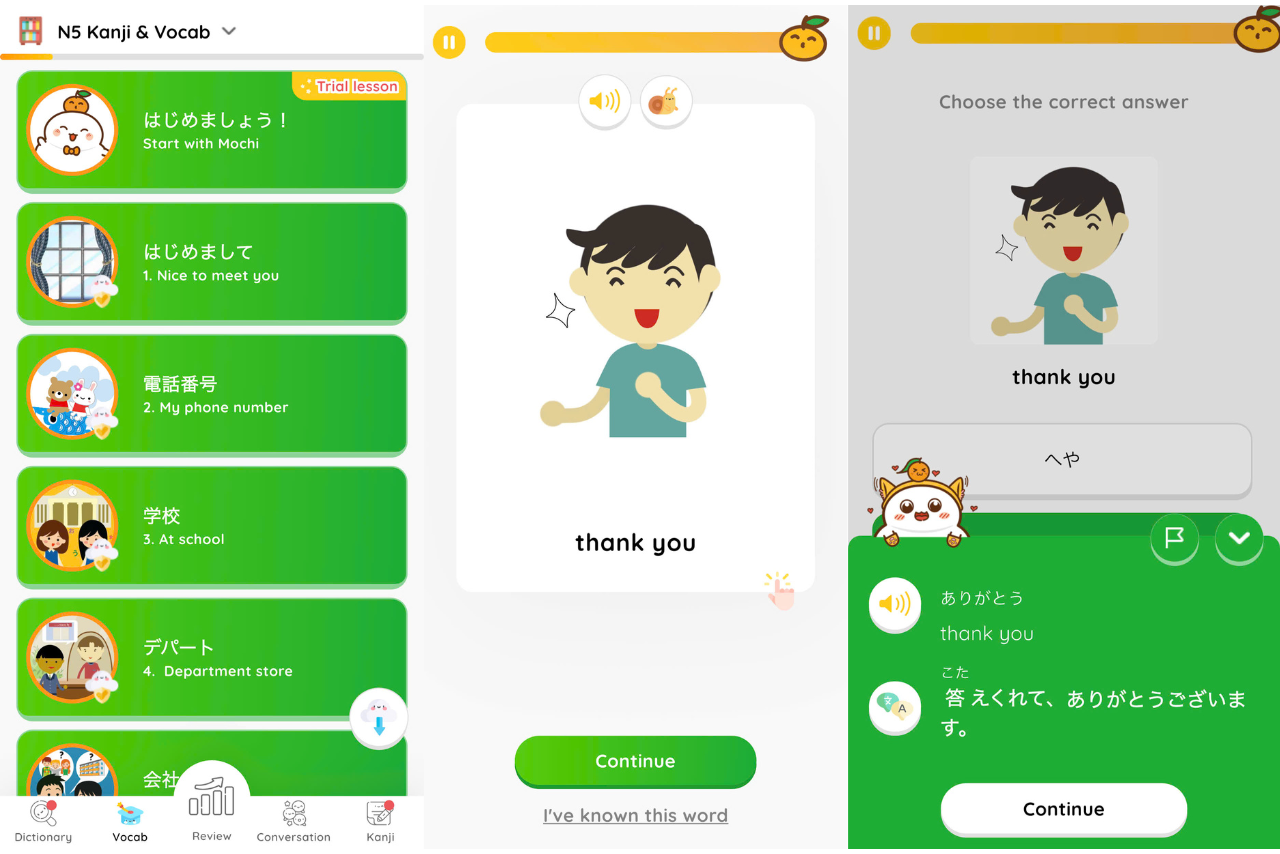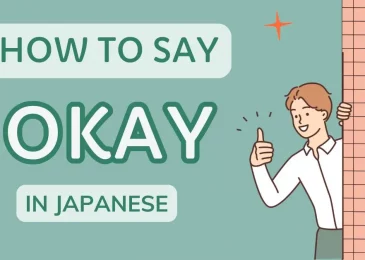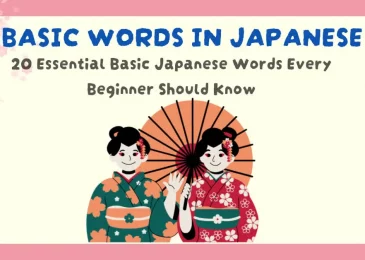Gratitude is deeply embedded in Japanese culture, and knowing how to express it appropriately is essential for smooth and respectful communication. The Japanese language offers a variety of ways to say “thank you,” each suited for specific situations and levels of formality. In this guide, we’ll explore more than 15 expressions, breaking down their meanings, uses, and contexts, so you can show appreciation like a native speaker.
Basic ways to say “Thank you”
These foundational phrases are a great starting point for beginners. They are versatile and commonly used in both casual and polite conversations.
1. Arigatou (ありがとう)
This is the simplest and most direct way to say “thank you”. It’s perfect for casual situations and often used among friends, family members, or peers. While informal, it still conveys genuine appreciation. For instance, if a friend passes you a pen or helps you carry something, you can respond with arigatou.
2. Arigatou Gozaimasu (ありがとうございます)
Adding gozaimasu makes the expression more formal and respectful. It’s appropriate for situations where you want to show politeness, such as thanking a coworker, teacher, or someone you’ve just met. This phrase is commonly used in service settings too, like thanking a shopkeeper or waiter.
Expressing Deeper Gratitude
When a simple “thank you” isn’t enough, these phrases help you express profound appreciation.
3. Doumo Arigatou (どうもありがとう)
This phrase amplifies arigatou by adding doumo, which loosely means “very” or “much”. It conveys a higher level of gratitude, often used when someone does something particularly helpful or kind for you. For example, if a friend spends a lot of time helping you move, you might say doumo arigatou.
4. Doumo Arigatou Gozaimasu (どうもありがとうございます)
This is one of the most polite ways to say “thank you very much.” It’s ideal for formal scenarios where you want to emphasize your appreciation, such as when thanking a superior, a client, or someone who has provided significant assistance.
5. Doumo (どうも)
This single word is a versatile and informal way to say “thanks.” It’s often used for small favors or quick acknowledgments. For example, if someone holds the door open for you, a simple doumo would suffice.
Formal and Business Contexts
In professional environments, expressing gratitude with respect and formality is crucial.
6. Osewa ni Narimasu (お世話になります)
This phrase is used when you’re about to receive assistance or hospitality, especially in business or formal settings. It translates to “I am in your care” or “Thank you for your support”. You might use this when beginning a new job or entering a business partnership.
7. Osewa ni Narimashita (お世話になりました)
The past tense version is used to express gratitude for help or support already received. For example, after completing a project or finishing an internship, you could say this to your colleagues or mentors.
8. Kansha Shimasu (感謝します)
This formal phrase means “I am grateful” or “I express my gratitude”. It’s often seen in formal speeches, letters, or official communications. It conveys a deep and respectful form of thanks, suitable for professional or ceremonial contexts.
Humble and Apologetic Gratitude
Japanese culture often emphasizes humility, and these phrases reflect that aspect even in expressions of gratitude.
9. Sumimasen (すみません)
Though it primarily means “excuse me” or “I’m sorry”, sumimasen can also be used to express gratitude, especially when someone goes out of their way to help you. For instance, if a stranger helps you carry something heavy, you might say sumimasen to acknowledge both your appreciation and the trouble you’ve caused them.
10. Osoreirimasu (恐れ入ります)
This highly formal expression is often used in business or customer service contexts. It conveys deep humility and respect, showing gratitude for someone’s effort while recognizing the inconvenience they might have faced.
Gratitude in Specific Situations
Some expressions are tied to specific activities or moments.
11. Arigatou Gozaimashita (ありがとうございました)
This is the past tense of arigatou gozaimasu. It’s used to thank someone for something that has already happened, such as a completed service or event. For example, after dining at a restaurant, you would say this to the staff as you leave.
12. Gochisousama Deshita (ごちそうさまでした)
A phrase specifically used to express gratitude after a meal. It acknowledges both the food and the person who prepared or provided it. It can be said at home to the cook or at a restaurant to the staff.
13. Itadakimasu (いただきます)
Although often translated as “let’s eat”, itadakimasu is a form of gratitude before starting a meal. It shows appreciation for the food and the effort that went into preparing it.
Casual and Slang Variations
For informal settings or conversations among friends, these variations add a casual tone to your gratitude.
14. Sankyuu (サンキュー)
This is the Japanese Katakana adaptation of the English “thank you.” It’s very casual and often used among younger people or in relaxed settings. It’s a great way to acknowledge small favors or gestures quickly.
15. Azassu (あざっす)
A slang version of arigatou gozaimasu. It’s commonly heard in sports teams or casual work environments. For instance, teammates might say azassu to thank each other after practice.
Regional and Dialectal Variations
Japan’s regional dialects add flavor to the language, including unique ways to say “thank you.”
16. Ookini (おおきに)
This phrase is part of the Kansai dialect, especially in Osaka. It’s a casual and friendly way to say “thank you,” often used in shops or local interactions.
17. Nandemonai (なんでもない)
While this phrase literally means “it’s nothing,” it’s sometimes used in response to being thanked, as a modest way to downplay your effort.
How to Use These Phrases Correctly
Understanding the nuances of when and how to use each phrase is crucial for effective communication.
- Use arigatou gozaimasu in formal or polite situations to show respect.
- Opt for doumo or sankyuu in casual interactions.
- In business settings, phrases like osewa ni narimashita and kansha shimasu are more appropriate.
Tips for Learning Japanese Effectively
If you’re just starting out, learning simple phrases like thank you in Japanese – arigatou or arigatou gozaimasu—is a great foundation. Here are some tips to make your learning journey smoother:
- Start with Everyday Phrases: Focus on practical expressions that you’ll use often. Knowing how to say thank you in different contexts is a good place to begin.
- Use Online Apps: Apps like MochiKanji can make Kanji and Japanese vocabulary learning more engaging and efficient. It helps you practice through lively flashcards and interactive quizzes, making it easier to remember characters while learning phrases.
- Immerse Yourself in the Language: Watch Japanese shows, listen to podcasts, or read simple articles to familiarize yourself with natural expressions.
- Practice Speaking and Writing: Regularly use what you’ve learned by speaking with language partners or writing short texts in Japanese.
By combining phrase learning, tools like MochiKanji, and consistent practice, you’ll master Japanese more effectively!
Conclusion
The Japanese language offers a rich variety of expressions for saying “thank you,” each tailored to different contexts and levels of formality. Whether you’re thanking someone in a casual chat, a business meeting, or a regional interaction, knowing these phrases will enhance your communication and show your appreciation authentically. By mastering these 15+ ways to express gratitude, you’ll not only improve your language skills but also deepen your understanding of Japanese culture.







